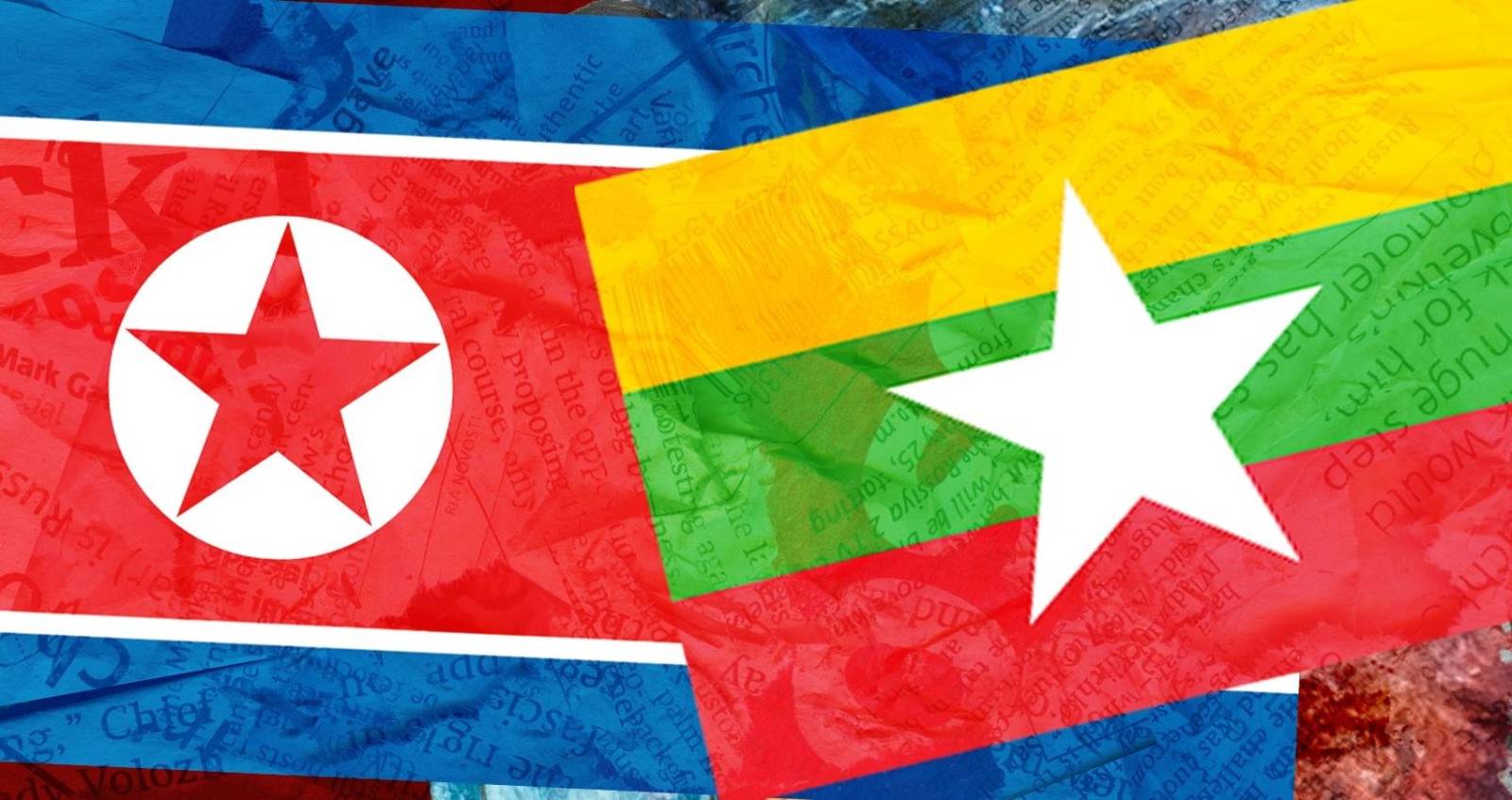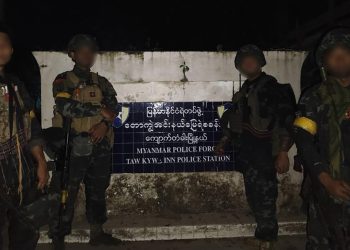Mustering Beijing’s BRI Troops

Shortly after Chinese President Xi Jinping and junta chief Min Aung Hlaing marked 75 years of diplomatic ties by urging acceleration of Myanmar’s Belt and Road projects, the regime on Wednesday announced it is ready to certify Chinese private security companies seeking to operate in the country.
The next day, the junta’s Central Supervisory Committee on Private Security Services met for the first time at national police headquarters in Naypyitaw, where Home Affairs Minister General Tun Tun Naung chaired talks on the entry of Chinese security troops.
Also present were chairs and secretaries of the regional and state-level committee on private security services. They were told that private security companies were needed to support national security, law enforcement and public order.
The meeting discussed license application procedures and requirements for business operators seeking security services, according to regime media.
Junta boss Min Aung Hlaing signed the Private Security Service Law on Feb. 18, enabling Chinese security operations to establish a presence in Myanmar.
Beijing proposed a joint security force during Chinese Foreign Minister Wang Yi’s visit in August 2024, following the regime’s loss of most of northern Shan State along the Chinese border. The move came amid growing threats from resistance forces to Chinese-backed projects – including oil and gas pipelines running from Rakhine State to Yunnan and the Muse-Mandalay-Kyaukphyu railway – were increasingly threatened by resistance forces. The proposal quickly took shape as the Private Security Service Law.
Analysts said the law was tailored to accommodate China, one of the junta’s few allies and a key arm suppliers. It requires private security companies to support the regime’s security and law enforcement efforts. Private Chinese troops must cooperate with junta forces, report potential threats, and collaborate when called upon — providing a win-win situation for both regimes while further eroding Myanmar’s national sovereignty.
The Pyongyang Connection
The military regime approved the appointment of a new North Korean ambassador to Myanmar on Thursday.
Kim Chong Il, 62, served as Asia Department deputy chief in North Korea’s Foreign Ministry before his appointment. He succeeds Jong Ho Bom, who led North Korea’s mission during the now ousted civilian administration and the past four years of military rule in Myanmar.
His Myanmar counterpart is Tin Maung Swe, who serves as the junta’s ambassador to both China and North Korea.
The diplomatically isolated junta maintains good relations with North Korea and a handful of other authoritarian regimes, including China, Russia, Belarus, and Cambodia. It cooperates with Russia – North Korea’s close ally – on nuclear technology. Speculation is also rife of military and nuclear technology cooperation between Naypyitaw and Pyongyang.
Diplomatic relations between the two countries were first established in 1975 but suspended by Myanmar following an assassination attempt by North Korean agents on then South Korean President Chun Doo-hwan during his visit to Yangon in October 1983.
The two countries only restored ties in April 2007 under Myanmar dictator Senior General Than Shwe, who appointed Thein Lwin as ambassador.
Eighteen months later, a high-level Myanmar military delegation led by then junta No. 3 Shwe Mann made a secret seven-day visit to Pyongyang. Their itinerary included Myohyang, a mountain fortress believed to house warplanes, missiles, tanks, and nuclear and chemical weapons. The visit sparked concerns that Myanmar was seeking cooperation to develop its own nuclear weapons capability.
The bilateral friendship suffered another hiccup in 2017 when Myanmar’s civilian government expelled North Korean diplomat Kim Chol-nam for suspected links with a company sanctioned by the UN Security Council.
Relations between the two countries seem to have normalized since Myanmar’s military coup in 2021.
One year later, North Korean Ambassador Jong Ho-bom led the Yangon diplomatic corps in celebrating Myanmar’s traditional water festival.


















